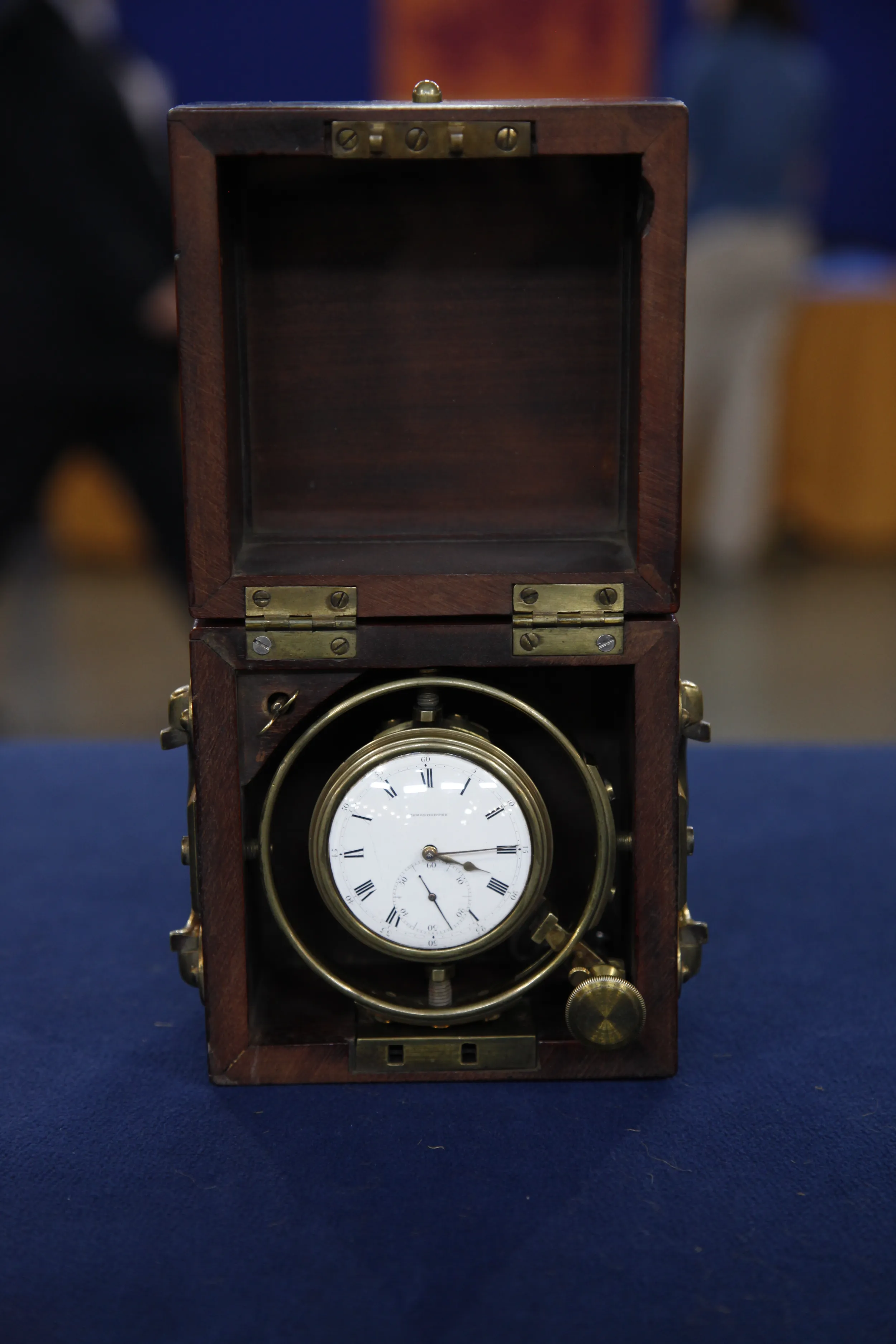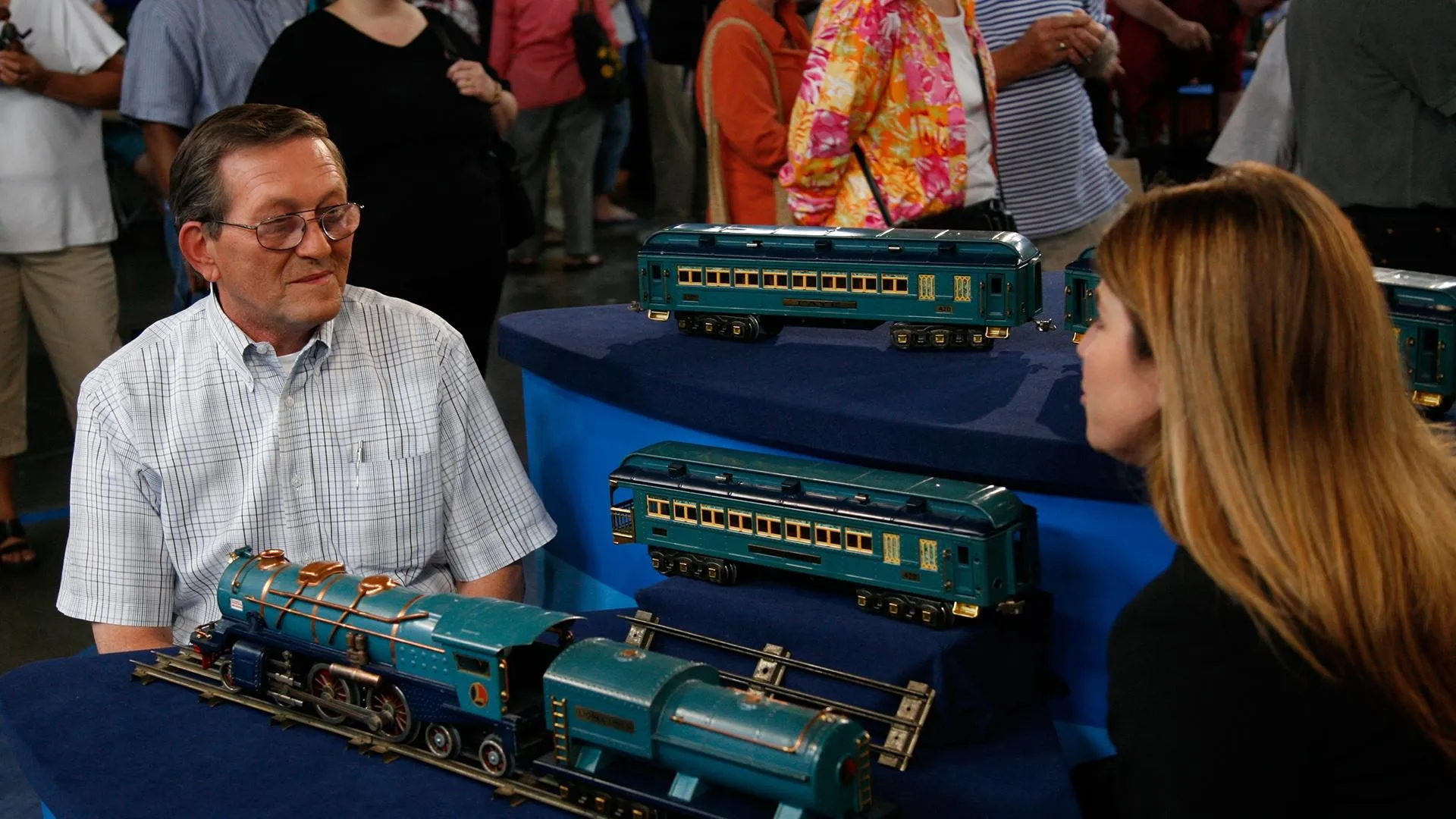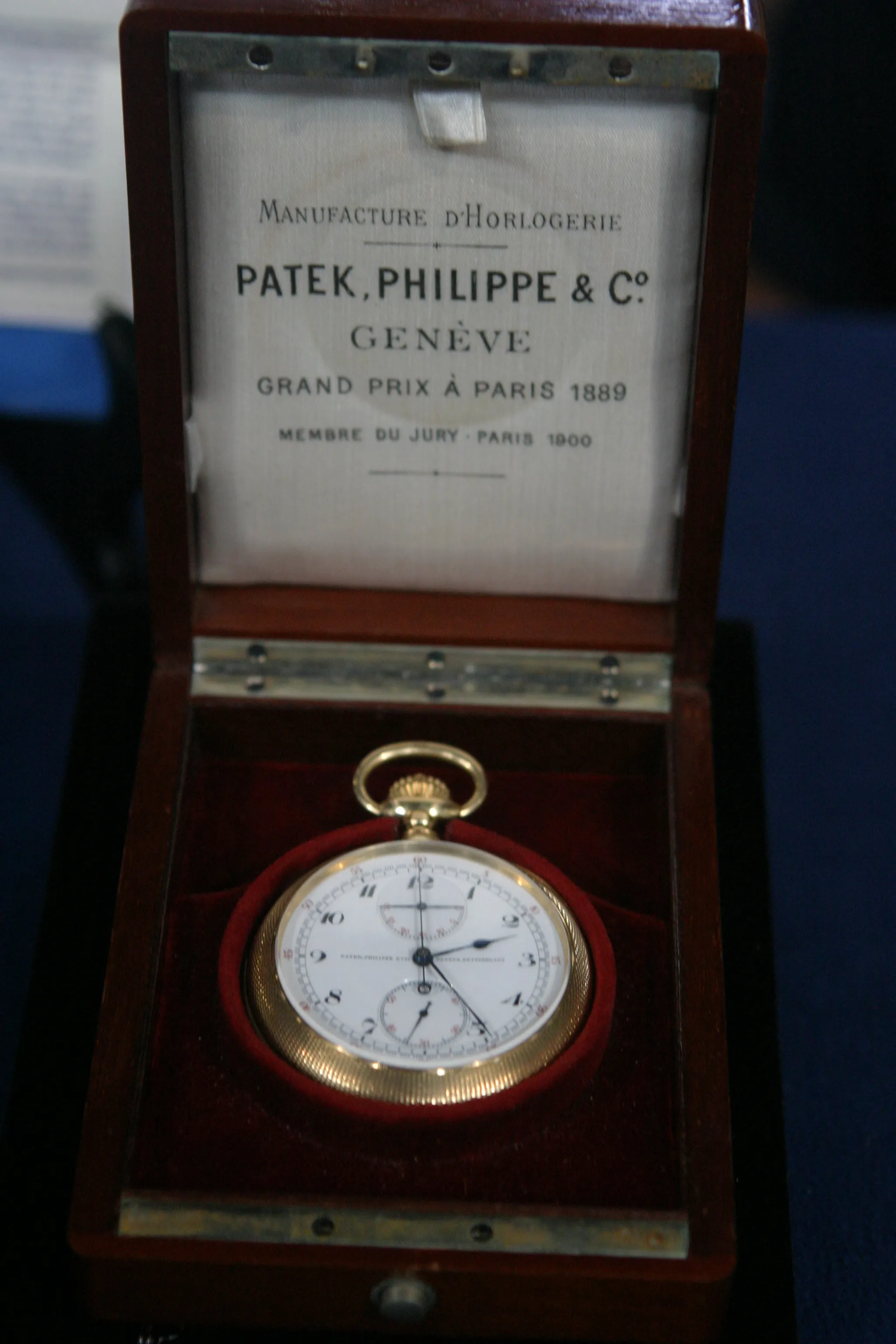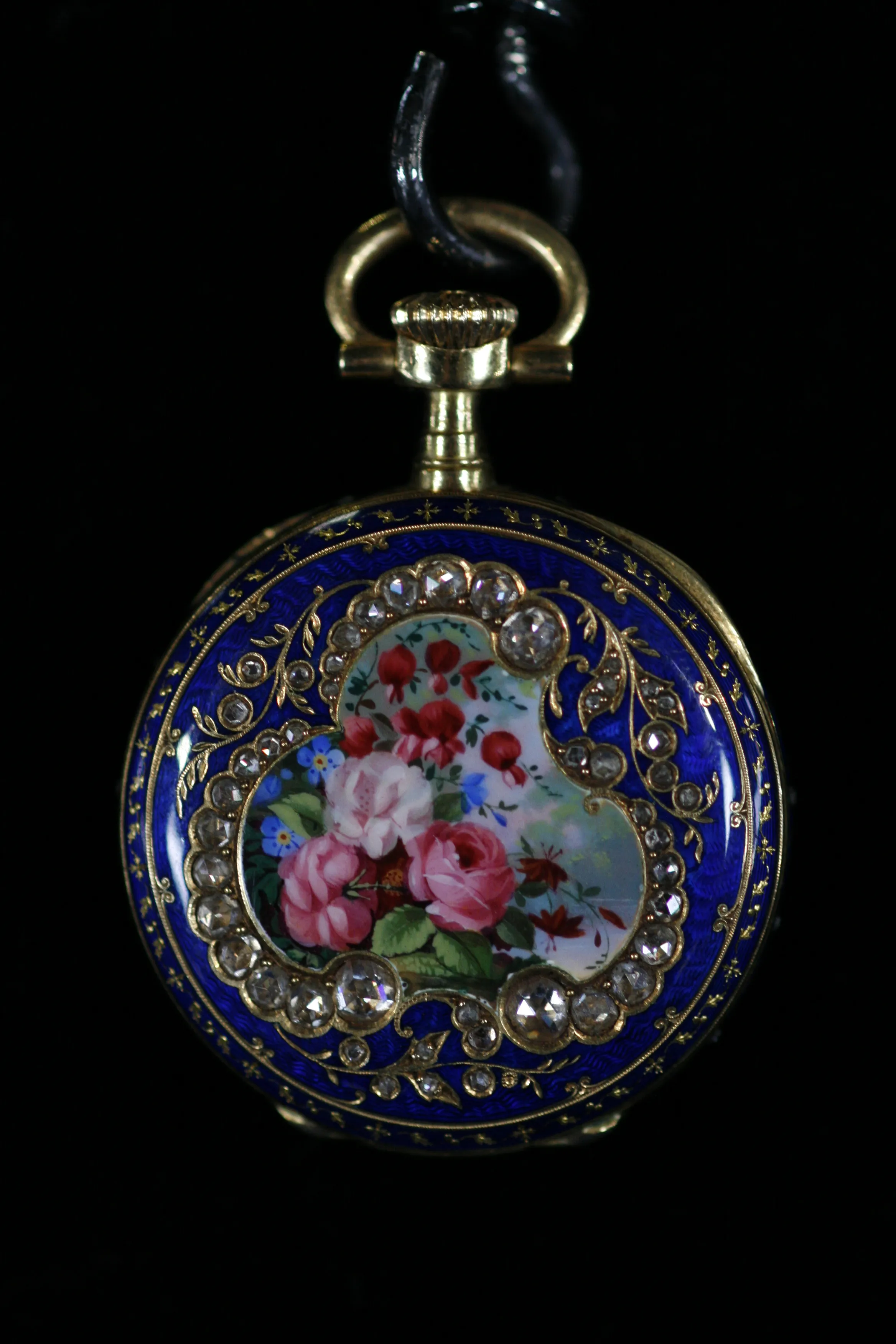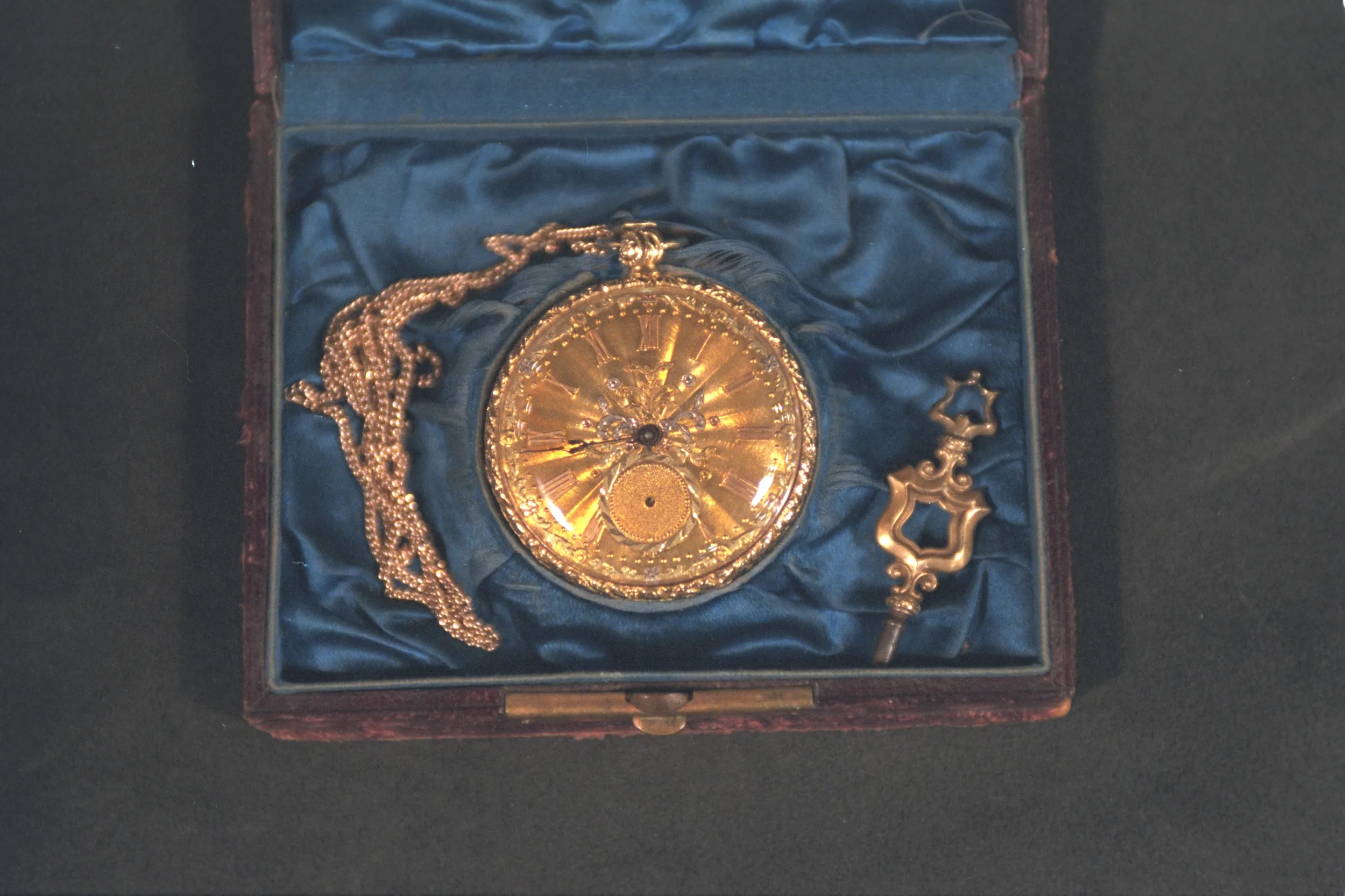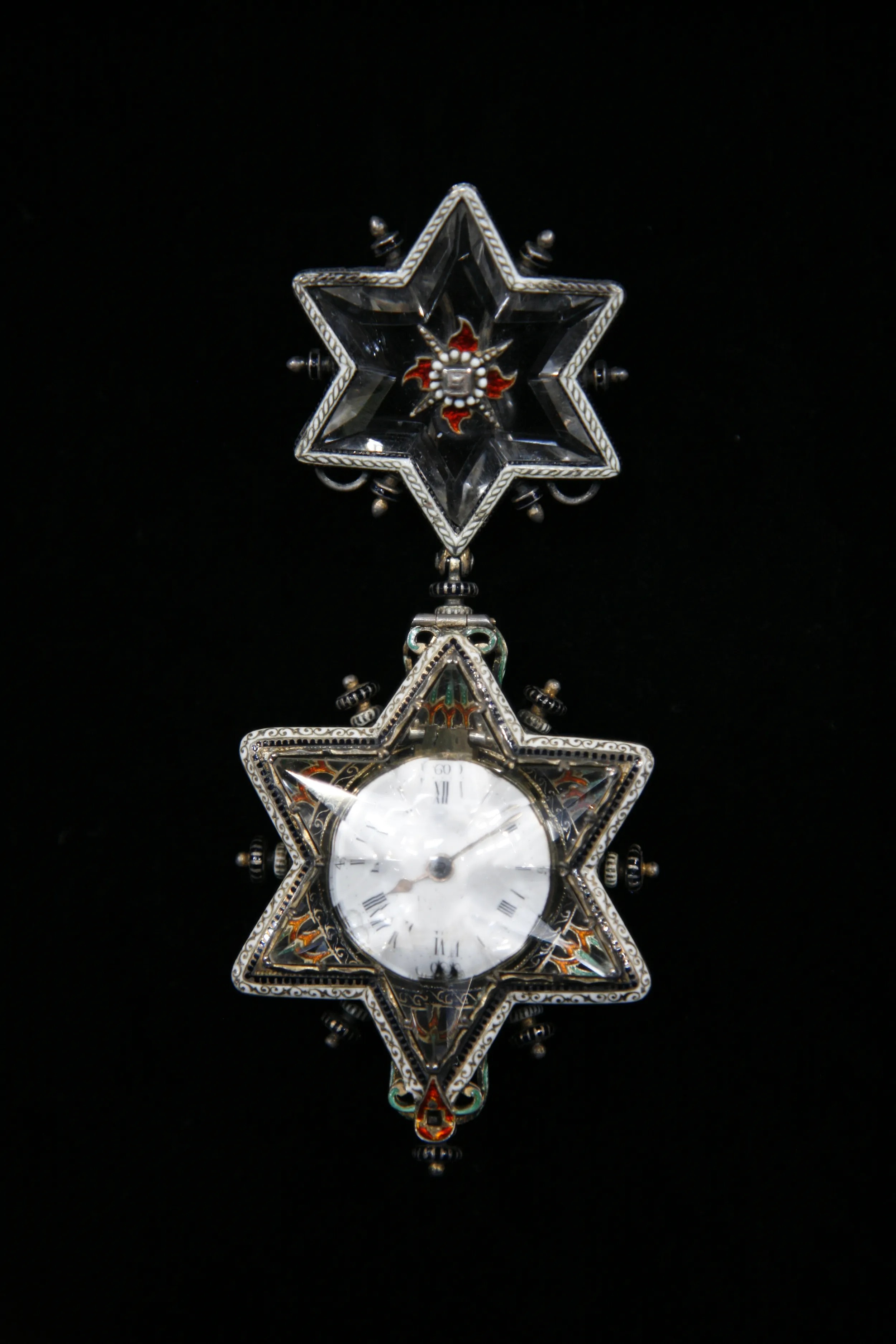GUEST: I brought a marine chronometer that I believe was built by Thomas Earnshaw. A friend of mine had it and we decided to buy it from him. I like clocks. I made a grandfather clock in high school. And I know it was for ships to tell time, but that's about all I know about it.
APPRAISER: Well, this is a pretty important marine chronometer, probably made sometime around 1815. It was made by Thomas Earnshaw, who was a London maker. He was born in 1749 and he died in 1829. What he's really well known for is he invented the patent spring detent escapement, which is an escapement that compensates for changes in temperature. Two metals working against each other, and as a result, it's a much more accurate way of keeping time. Now, that's very important when you're measuring longitude, because if you're sailing across the ocean, you need to know your fixed position in terms of minutes so that you can sail to the point in which you want to arrive at. If you're off a couple of minutes, you could be on a shoal of rocks or you could be in another port. During that early period of maritime sailing, the English government put out a prize for that, which was won by John Harrison. He actually invented the chronometer. This particular maker improved it. And his improvements were used universally after that time period. He won a prize from the Board of Longitude. He became known as the father of the chronometer. And you can see that it is a chain fusee. It gets its power from the spring here, and the original chain is still there. This is actually supported in a very protective case. This fits into this brass cylinder here and it has a porcelain dial. It's very easy to read. And when we screw on this bezel, it's locked into place. Now, it's set in a gimbal so that if the boat's rocking, it compensates for that. It does have a hairline crack in the dial. It's fitted in a box that helps protect it from the elements.
Can you tell me what you bought this clock for?
GUEST: Uh, I paid $125 for it.
APPRAISER: How long ago did you purchase this clock?
GUEST: Um, within the last year.
APPRAISER: This particular clock would probably have an auction estimate of somewhere between $6,500 and $8,500.
GUEST: Whoa.
APPRAISER: That's a pretty good investment of $125.
GUEST: Pretty good investment, huh?

